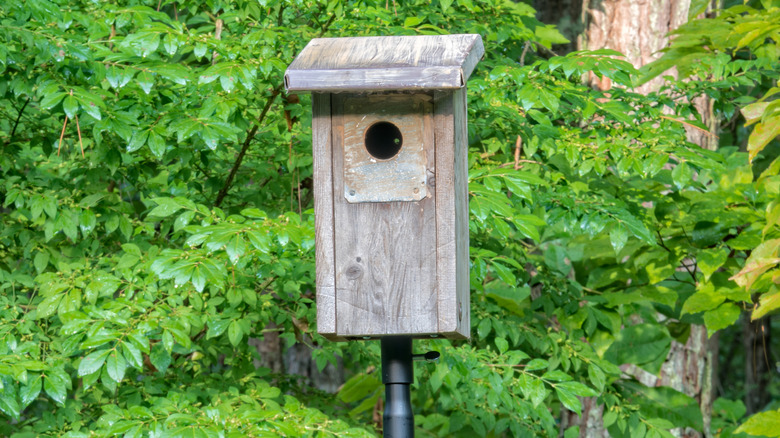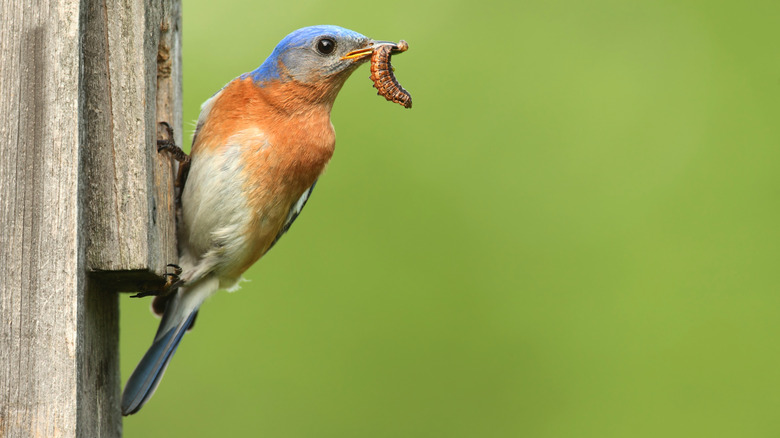This Beautiful Songbird Is The Best Natural Pest Control For Your Yard
Everyone wants a safe and healthy yard they can actually use, whether it's for playing with your pets or kids, having a cookout, or simply relaxing. Unfortunately, pests can quickly unravel such plans. When left unmanaged, insects can take over your yard and make outdoor activities unenjoyable. At the same time, you may be on the fence about resorting to insecticides, and for good reason. Before you try out anything chemical-based, you might be able to rely on certain birds to help you out in your quest for pest management. Bluebirds (Sialia spp.) might be particularly helpful with pest management thanks to their natural protein-rich diets. In theory, it would make sense to try to attract more of these beautiful songbirds to your yard for such purposes.
Bluebirds are some of the most spectacular types of songbirds in North America. While you might be familiar with the eastern bluebird (Sialia sialis), there's also the mountain bluebird (Sialia currucoides) and the western bluebird (Sialia mexicana), both of which reside in the western regions of the continent. All three of these bluebird species eat insects, as well as certain plant foods. However, you're not likely to see bluebirds at a traditional seed feeder. While these birds might eat some mealworms, these are considered tertiary at best, and too many mealworms can actually harm bluebirds. In fact, you don't want to make this harmful mistake when feeding bluebirds. Instead of leaving out store-bought food sources for bluebirds, they're happier to scavenge for insects around your yard instead, and perhaps double as natural pest control agents.
How bluebirds can help tackle unwanted pests in your yard
While bluebirds shouldn't be your sole pest control strategy, having more of them around your yard will certainly help manage unwanted insects and arachnids. It turns out that the majority of a bluebird's diet consists of caterpillars, beetles, ants, flies, moths, grasshoppers, wasps, and spiders. All of these protein sources are especially important during bluebird nesting season for feeding their young. Incredibly, a bluebird is said to be able to spot its prey from more than 50 yards away! Aside from insects, bluebirds also eat a variety of berries and other fruits, so you might consider having these types of plants in your yard as well.
As long as there's a reliable food source, bluebirds may keep coming back to your yard. It's perhaps these same reasons why eastern bluebirds have also popped up in places where humans hang out, such as parks, golf courses, and a variety of other open spaces. Also, if you need another reason not to use insecticides, know that these chemicals are just one of the human-based activities responsible for declining bluebird populations. In fact, insecticides are considered one of the common things you may be doing that can hurt birds more generally.
Aside from lack of food, bluebirds also face a decline in nesting spots. For this reason, you might consider building bluebird houses or nesting boxes as other ways you can support them. Inviting bluebirds to your yard is a win-win for you both: Not only will they feed on those pesky insects, but you may also be helping to support their overall population.

